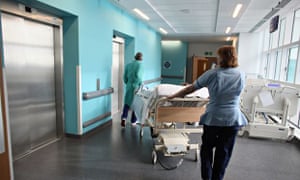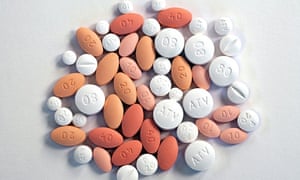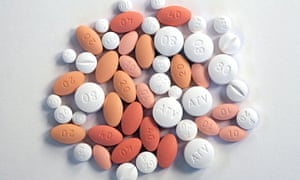A new audit on the provision of palliative care in hospitals has found significant variations in the standard of care in hospitals across England. Get the data behind the results

There is a “significant variation in the standard of care for people dying in hospitals” across England, according to the results of a new audit which calls for ‘widescale improvements’ in end of life care.
Health Editor, Sarah Boseley writes:
Fewer than half of NHS patients who were in their last hours or days were told that they were dying by hospital staff, according to a critical report from the Royal College of Physicians (RCP), while a significant number of families and relatives are left feeling they have no emotional support.
The report also highlights the continued lack of specialist palliative care at weekends, 10 years on from Nice recommendations that it should be offered seven days a week.
While every patient has different needs, and some will need more pain relief than others for example, there should be no variation in the quality and provision of services, or training in the care of people dying in hospitals. The audit shows that major improvements need to be made to ensure better care for dying people, and better support for their families, carers, friends and those important to them.
Around half of all deaths in England happen in hospitals according to the Office for National Statistics (ONS). The audit found that despite longstanding national recommendations from the National Institute for Health and Care excellence (Nice), only 21% of hospital sites had access to face-to-face palliative care services seven days per week. 73% provided face-to-face palliative care services on weekdays.
Only 28% of trusts had systems in place for mandatory training for nurses in care of the dying and only 19% for doctors. The audit recorded that 82% of trusts provided some form of training in the previous year, while 18% had not provided any. Almost half (47%) of Trusts did not have a named board member with responsibility for care of the dying.
It also found that 87% of patients had documented recognition that they were in the last hours or days of life, but discussion with patients was only documented in only less than half (46%) of those thought capable of discussing this. Communication with families and friends was recorded in 93% of cases and on average, these discussions occurred 31 hours prior to death.
27% of the participating trusts undertook a local survey of bereaved relatives: of those completing the questionnaire, 76% reported being very or fairly involved in decisions about care and treatment of their family member. Almost a quarter, however, did not feel they were involved in decisions at all.
63% of respondents said that the overall level of emotional support given to them by the healthcare team was good or excellent, while 37% thought it was fair or poor. Overall, 76% said they felt adequately supported during the patient’s last two days of life, almost a quarter did not.
Other key findings from the audit are below:
- Only 21% of patients capable of having the conversation were asked about their spiritual needs, and only 25% of relatives/carers asked about their own needs
- Most patients (63-81%) had medication prescribed ‘as required’ for the five key symptoms often experienced near the end of life: pain, agitation, noisy breathing, difficulty in breathing, nausea and vomiting. Not all patients need the medication and in the last 24 hours of life 44% received pain relief and 17% medication for shortness of breath
- 59% of patients were clinically assessed to see if they needed artificial hydration, but discussions with the patient was only recorded with 17% of patients capable of discussing it. The situation was discussed with more than twice as many (36%) relatives and friends. Artificial hydration was in place for 29% of patients at the time of death
- 45% of patients were clinically assessed to see if they needed artificial nutrition, but discussions with the patient was only recorded with 17% of patients capable of having the conversation. The situation was discussed with 29% of relatives and friend. Artificial nutrition was in place for 7% of patients at the time of death
- Only 47% of Trusts reported having a formal structured process in place to capture the views of bereaved relatives or friends prior to this audit
What did the audit assess?
The new audit evaluated:
- The quality of care received directly by 6,580 people who died in 149 hospitals in England between 1 May and 31 May 2013. This was done by reviewing the case notes of a sample of patients and is not the total number of people who died in hospital during this time. The audit only covered expected deaths
- Results from questionnaires completed by 858 bereaved relatives or friends, asking about the treatment of their relative, their involvement in decision making, and the support available to them. The questionnaire was distributed by some hospitals involved in the audit, and the results were aggregated nationally
- The organisation of care including availability of palliative care services, numbers of staff, training, and responsibilities for care.
The table below shows the results of only three of the clinical audit key performance indicators (KPIs) used in the NCDAH audit. You can see the information by hospital trust, they are listed in alphabetical order. You can find full table of the results including both clinical and organisational KPIs results by hospital trust in the downloadable spreadsheet.








